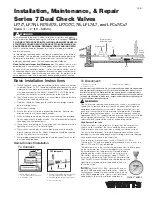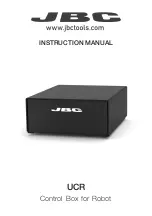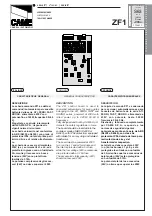
Chapter 45: CLI Overview
STANDARD Revision 1.0
C4® CMTS Release 8.3 User Guide
© 2016 ARRIS Enterprises LLC. All Rights Reserved.
1119
ARRIS.*
When you use an asterisk (*), it means none, one, or more of the previous character in the pattern. In the example, the
asterisk is preceded with a period, which means none, one, or more of any character.
Multipliers
You can create more complex regular expressions that instruct the software to match multiple occurrences of a specified
expression. The following table lists special characters that specify "multiples" of an expression.
Table 145.
Special Characters Used as Multipliers
Character
Special Meaning
*
The asterisk matches any number (or none) of the single character that immediately precedes it. The
preceding character can also be a regular expression. E.g., since . (dot) means any character, then .*
means "match any number of any character."
+
The plus matches 1 or more sequences of the preceding regular expression
Examples:
To match any number of occurrences of the letter m, including none:
m*
To require that at least one letter m be in the string to be matched:
m+
By enclosing the pattern in parentheses you can use multipliers with multiple-character patterns. The parentheses ()
characters are used to see this pattern as one character. In the following example, the pattern matches any number of the
multiple-character string mn:
(mn)*
Some useful example patterns that might be helpful:
Any IP address = [0-9]+\.[0-9]+\.[0-9]+\.[0-9]+
Any MAC address = [0-9a-f][0-9a-f][0-9a-f][0-9a-f]\.[0-9a-f]
















































